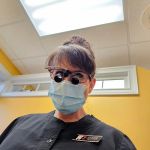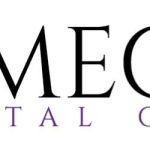Wisdom Teeth Removal Recovery Time: What to Expect
- 1. Understanding the Wisdom Teeth Removal Procedure
- 2. What Affects Wisdom Teeth Removal Recovery Time?
- 3. Immediate Aftercare: The First Few Days
- 4. How Long Does Full Recovery Take?
- 5. Tips for Faster Healing and Recovery







 Axiom Dentistry4.0 (314 review)
Axiom Dentistry4.0 (314 review) Dr. Tom Family & Cosmetic Dentistry4.0 (272 review)
Dr. Tom Family & Cosmetic Dentistry4.0 (272 review) David K Buran, DMD5.0 (107 review)
David K Buran, DMD5.0 (107 review) Valleywise Community Health Center - Avondale4.0 (343 review)
Valleywise Community Health Center - Avondale4.0 (343 review) Higley Park Dental4.0 (563 review)
Higley Park Dental4.0 (563 review) Omega Dental Care4.0 (74 review)
Omega Dental Care4.0 (74 review) The Importance of Oral Health Education During Pregnancy for a Healthy Pregnancy
The Importance of Oral Health Education During Pregnancy for a Healthy Pregnancy Best Tips for Brushing Your Teeth Properly for Healthy Gums: Essential Techniques for Oral Health
Best Tips for Brushing Your Teeth Properly for Healthy Gums: Essential Techniques for Oral Health Why Skipping Dental Checkups Can Lead to Bigger Oral Health Problems
Why Skipping Dental Checkups Can Lead to Bigger Oral Health Problems Advantages of Porcelain Dental Restorations
Advantages of Porcelain Dental Restorations How Can Diabetes Cause Tooth and Gum Problems? Preventing and Managing Oral Health Issues
How Can Diabetes Cause Tooth and Gum Problems? Preventing and Managing Oral Health Issues Healthy Habits for Promoting Good Oral Health and Hygiene: Tips for a Healthy Smile
Healthy Habits for Promoting Good Oral Health and Hygiene: Tips for a Healthy Smile